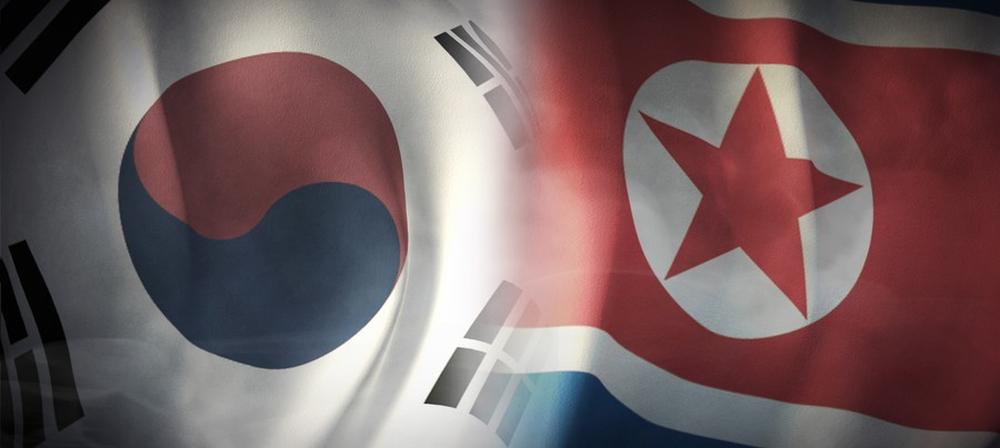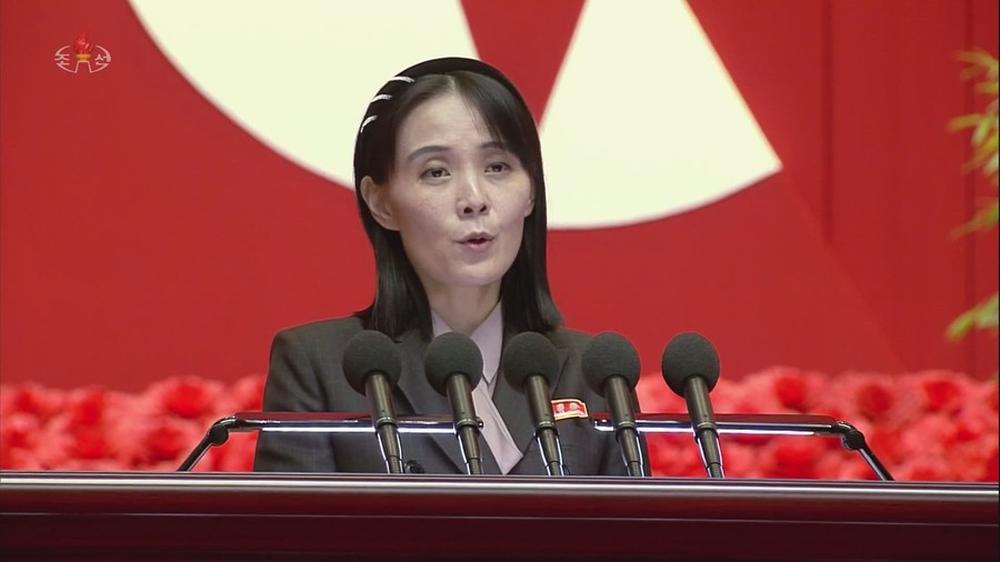- #Economy & Trade
- #Inter-Korean Relations
- #North Korea
- #US-ROK Alliance

►The keyword for the Yoon Suk Yeol administration's North Korea policy, which was unveiled by President Yoon's transition team, was "normalization of inter-Korean relations." To achieve this goal, the Yoon administration has proposed four different strategies.
►The Yoon administration's North Korea policy may depend on whether North Korea ends up carrying out its seventh nuclear test. Currently, because the South and the North are looking in different directions, it will be nearly impossible to break the stalemate, but if North Korea conducts its seventh nuclear test, it could be the "trigger" for the Yoon administration to switch to a hardline stance against North Korea.
The keyword for the Yoon Suk Yeol administration's North Korea policy, which was unveiled by President Yoon's transition team, was "normalization of inter-Korean relations." To achieve this goal, the Yoon administration has proposed 1) promoting the denuclearization of North Korea, 2) normalizing inter-Korean relations, 3) preparing for reunification together with the public, and 4) resolving humanitarian issues between the South and the North. In other words, this administration's North Korea policy is based on the idea that inter-Korean relations were abnormal under the previous administration.
Aware of the criticism that "normalization of inter-Korean relations," which differs from the Moon Jae-in administration's policy, is rather abstract, President Yoon linked the normalization of inter-Korean relations with the nuclear issue in his inaugural address on May 10, and stated that South Korea will keep the door open for dialogue and prepare an "audacious" plan for North Korea to peacefully resolve the nuclear issue if "the North ceases the development of its nuclear program and embarks on a genuine and substantive process for denuclearization." This refers to a portion of the "audacious initiative" that the president would later propose in his National Liberation Day Speech on August 15.
President Yoon held a summit with U.S. President Joe Biden, who visited Korea for two days from May 20, and the leaders of the two countries coordinated their positions on "denuclearization," which is the main goal of normalizing inter-Korean relations. Above all else, at the joint summit, the two leaders reconfirmed their common goal of "complete denuclearization of the Korean Peninsula" and shared the view that North Korea's nuclear program presents a "grave threat" to not only the Korean Peninsula but also to the peace and stability of the world. For this reason, the two leaders affirmed their commitment to strengthening the combined defense posture under the ROK-U.S. Mutual Defense Treaty to ensure a strong deterrence against North Korea.
In line with the strengthened extended deterrence of the ROK-U.S. alliance, President Yoon, in his recent National Liberation Day speech, unveiled the "audacious initiative," the master plan of his administration's North Korea policy. Based on the condition that North Korea "embarks on a genuine and substantive process for denuclearization," President Yoon pledged to provide unprecedented incentives for the North Korean economy - first, a large-scale food program; second, assistance for power generation and transmission and distribution infrastructure; third, projects to modernize ports and airports; fourth, support for agricultural technology; and fifth, international investment and financial support initiatives.
At the Foreign Affairs and Unification Committee of the National Assembly on August 18, Unification Minister Kwon Young-se explained President Yoon's "audacious initiative" in more detail, stating, "If North Korea's intention to denuclearize is clear," not only an inter-Korean summit but also the normalization of North Korea-U.S. relations could be placed at the start of negotiations. During previous denuclearization negotiations, the normalization of North Korea-U.S. relations was exchanged during the final stages of denuclearization. Being able to put this bargaining chip at the start of negotiations means that it can be used as a catalyst to kickstart negotiations for denuclearization, which is a more advanced proposal than in the past.
However, in articles published under her own name in Rodong Sinmun and Korean Central News Agency, North Korea's Kim Yo-jong, Deputy Department Director of the Worker's Party of Korea, strongly criticized the "audacious initiative" that President Yoon unveiled in his National Liberation Day speech. She stated that President Yoon's "audacious initiative" is nothing more than a copy of the Lee Myung-bak administration's "Vision 3000: Denuclearization and Openness" policy from a decade ago, and she emphasized that "if North Korea takes denuclearization measures" is a false presumption.
Kim Yo-jong described nuclear weapons as North Korea's foundation, stating, "the suggestion of exchanging our nuclear weapons, which are our foundation, for something like economic cooperation," and she went on to strongly criticize the Korea-U.S. combined military training exercise Ulchi Freedom Shield (UFS) that began on the 16th, stating, "Today, you speak of an audacious initiative, and tomorrow you will go ahead with North Korea invasion war exercises." She used crude expressions to criticize President Yoon, calling him by his name without using a title, and she did not hide her feelings about the Moon administration, bringing up the previous administration’s "Driver Theory" and criticizing it.
Although the Yoon administration's "audacious initiative" proposes more drastic and direct economic assistance than ever before based on the pre-condition that North Korea denuclearizes, Kim Yo-jong defined nuclear weapons as North Korea's "foundation" and refused to recognize economic support as something of equal value that can be exchanged for nuclear weapons. North Korea's seemingly rash response to the traditional nuclear negotiation method of exchanging "security for the economy" stems from the painful failure of the inter-Korean and North Korea-U.S. summits during the Moon administration's "Korean Peninsula Peace Process."
Following the launch of Hwasong-15 in November 2017, North Korea declared that it had "realized the great historic cause of completing the state nuclear force," and considering that U.S. sanctions against North Korea were in full swing, took advantage of the North-South-U.S. triangular channel to normalize relations with the United States by improving relations with South Korea. As a result, starting with the participation in the opening ceremony of the Pyeongchang Winter Olympics in February 2018, North Korea consecutively held an inter-Korean summit in Panmunjom on April 27 and the first North Korea-U.S. Summit in Singapore on June 12, and in the final agreement, North Korea agreed to exchange "security for security" by exchanging the denuclearization of the Korean peninsula for a peace regime. In addition, North Korea held an inter-Korean summit in Pyongyang on September 19 to sign the "9・19 South-North Korea Military Agreement" to reduce military tensions.
However, on February 28, 2019, at the second North Korea-U.S. summit, President Trump shocked the world when he ended the talks with "no deal." During the negotiations, in response to President Trump's demand for additional nuclear verification, Chairman Kim Jong-un suddenly demanded that the U.S. lift its sanctions against North Korea. However, the United States rejected North Korea's desired exchange of "security for the economy." Consequently, at the Fifth Plenary Meeting of the Seventh Central Committee in December 2019, North Korea declared a "breakthrough head-on" with the United States, and again at the Fifth Plenary Meeting of the Eighth Central Committee turned it into a confrontation, declaring the "principle of the head-on contest."
To elaborate on the confrontational policies, North Korea crudely criticized the Yoon administration's "audacious initiative" and made it clear that they are no longer interested in negotiations based on the pre-condition of denuclearization. North Korea mentioned that the suspension of ROK-U.S. military exercises and a ban on the import of strategic weapons are pre-conditions for negotiation and said to the U.S. that lifting the sanctions against North Korea is the reference point for the end of the hostile U.S. policy toward North Korea.
Therefore, at this stage, the Yoon administration's "audacious initiative" is expected to be nothing more than words. The reason is that, above all else, South Korea and the U.S. cannot accept North Korea's conditions to suspend ROK-US military exercises, ban the import of strategic weapons, or lift sanctions against North Korea. However, in the wake of recent U.S.-China hegemonic competition and the war in Ukraine, North Korea understands that its strategic options, such as restoring the North Korea-China-Russia "Northern Triangle" surrounding North Korea, is expanding. Accordingly, a seventh nuclear test is possible at any time depending on the will of Chairman Kim.
As a result, the Yoon administration's North Korea policy may depend on whether North Korea ends up carrying out its seventh nuclear test. Currently, because the South and the North are looking in different directions, it will be nearly impossible to break the stalemate, but if North Korea conducts its seventh nuclear test, it could be the "trigger" for the Yoon administration to switch to a hardline stance against North Korea. However, if this does not occur, the current stalemate will likely continue for the foreseeable future.
Seung-yeol Lee is senior researcher at the National Assembly Research Service in South Korea. He earned a doctoral degree(Ph.D.) of North Korean Studies in 2009, and specialized in North Korean politics. He is author of the book Kim Jong il’s Choices (2009; in Korean). His recent articles are as follows; Changes in North Korea’s Military and Security Policies and Implications of the Kim Jong Un Era (2017, Journal of Peace and Unifications Vol.7, No.1); Political Transition in North Korea in the Kim Jong-un Era: Elites’ Policy Choices(2017, Asian Perspective Vol.41, No.3); The Evolution of North Korean Nuclear Issues: Diplomatic, Militaristic and Regime-change Approaches (2021, Journal of Peace and Unifications Vol.13, No.2)
